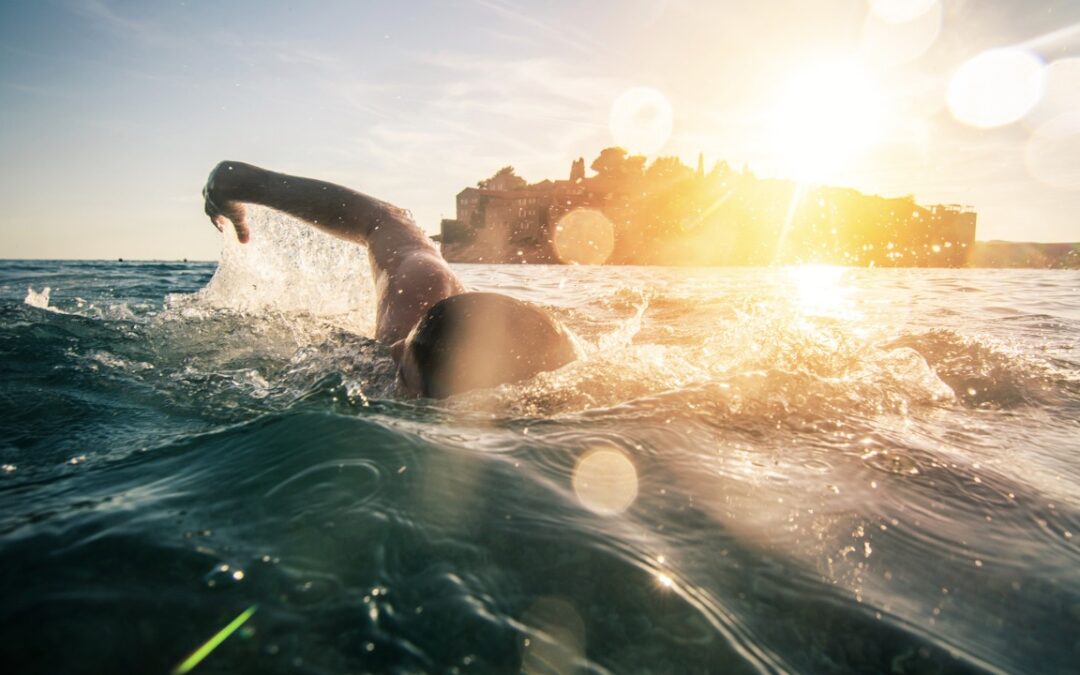If you or someone you love has a skin condition like atopic dermatitis, you might be wondering whether swimming is a good choice. The National Eczema Association shared the pros and cons of pool water vs. open water and provided tips for minimizing your risk of an eczema flare-up.
- Hydrating helps
Did you know your body heats up and sweats when you swim? That’s why it’s important to have plenty of fluids before and after you head into the water.
- Moisturizing is a must
Chlorinated pool water and other chemicals can dry out your skin, so lather up! Apply a thick layer of cream or lightweight ointment about an hour before a swim. Then, shower immediately afterwards and reapply a liberal amount of moisturizer within three minutes.
- Wash your swimsuit before wearing it
Use a gentle, hypo-allergenic detergent free of dyes and fragrances. It’s especially important to wash new swimsuits before you wear them to get rid of any chemicals used during production of the fabrics.
- Chlorine can help…or hurt
Chlorine is the most common disinfectant that gets added to the water in swimming pools. It can be irritating to some eczema skin, but many find that swimming in a chlorinated pool has a soothing effect. If you’re in the former group, choose a fresh-water alternative. However, if chlorine sits well with you, enjoy your time in the pool.
- Saltwater can soothe…or irritate
The effects of saltwater on eczema skin vary widely. It can be soothing for some and painful for others. If you’re an experienced swimmer, you already know your body and its preferences, but if you’re new to the sport, trial and error is the only way to find out how your skin will react to saltwater.
- Wear goggles and a swim cap made of silicon
Experts agree that silicon is less likely to cause a contact dermatitis flare-up than latex or rubber, especially in places like your eyes and your scalp, where the fabric is likely to rub and cause friction.
- Get out of your wet swimsuit
Once you’re out of the water, get out of that wet swimsuit and put on some dry clothes. Walking around all day in wet, tight-fitting fabric, even if it feels fine in the water, is a sure-fire recipe for friction and flaring.
The above guidelines apply to swimmers of every age and with all types of eczema, except for young infants.
Swimming is summer’s go-to activity, so take care of the skin you’re in — before, during and after you take the plunge.




